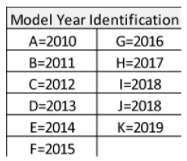
In a new market study on the small task-oriented vehicle (STOV) market in the US and Canada, Small Vehicle Resource (SVR), LLC describes an industry in midstream transition as:
- Climate policies, COVID-19 effects and new technologies usher in the urban/suburban mobility market and underpin an expanding consumer market for personal transportation vehicles (PTVs), as well as commercial markets for light duty utility vehicles;
- The transition from lead acid to lithium batteries continues, raising performance and transforming vehicle longevity and recycling value.
- The maturing off-road utility and recreational UTV market remains fundamentally strong and highly competitive, and is poised to follow the automobile and golf-car type vehicle markets into electrification;
The study provides a strategic analysis of the rise of urban/suburban mobility market driven in the context of the STOV industry. Steve Metzger, SVR Managing Director, states that, ???The intersection of climate policy, new technologies and COVID-19 effects will lead to a ???dispersed living lifestyle???, and provide new opportunities in the urban/suburban mobility market.??? He further remarks, ???The STOV industry, particularly the Big Three golf manufacturers with a foothold in gated communities, have the core competencies to transition from golf-centric to urban/suburban centric. The question is will they????
Marc Cesare, SVR Managing Director, adds that, ???While the UTV manufacturers will see solid growth in their market, some are capable of pursuing the urban/suburban mobility market as well. However, their DNA, profit centers and distribution channels are primarily off-road and powersports. Culturally, the pursuit of the urban/suburban mobility opportunity may be a difficult paradigm shift.???
The study, the tenth in the series since 2000, covers market trends from 2016 and develops projections to 2025. The key segments are golf fleet, personal transportation vehicles, light-duty utility vehicles, and off-road utility and recreation vehicles. In total, these segments are forecasted to reach close to 1,200,000 new vehicles in 2025. Electric powered vehicles continue to make inroads. Approximately a third of the market is electric powered, primarily in the form of fleet golf cars, PTVs, as well as light duty utility vehicles, of which approximately 80% will be electric by 2025. Key trends and projections for the market include:
- Demand for electric powered STOV vehicles will increase to over 450,000 vehicles in 2025.
- Golf course fleet demand will decline slightly during the trend period but will remain overwhelmingly electric powered, around 80%.
- Demand for PTVs will be strong.
- Lithium battery powered vehicles will continue to make inroads as more models become available with this option.
The study is entitled, Trends and Outlook for Small, Task-Oriented Vehicles-2016-2025- An Analysis of the Emerging Urban/Suburban Mobility Market. For additional, detailed information see the study brochure with table of contents or contact:
Steve Metzger smetzger@smallvehicleresource.com
(914) 293-7577













